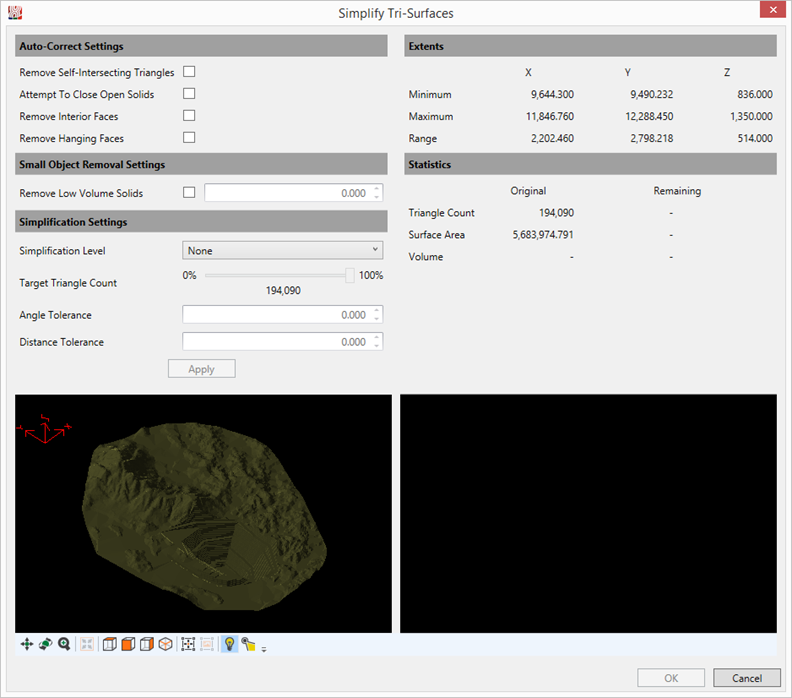Auto-Correct Settings
| • | Remove Self-Intersecting Triangles – this option will remove any self-intersecting triangles in the tri-surfaces. |
| • | Attempt To Close Open Solids – this option will attempt to close any open solids by triangulating the open areas. The success of this depends greatly on the data. |
| • | Remove Interior Faces – this option will remove any faces that are detected as being inside a solid. |
| • | Remove Hanging Faces – this option will remove any triangles that do not form a part of a solid. |
Small Object Removal Settings
| • | Remove Low Volume Solids – if selected, this option will remove any closed surfaces whose volume is less than the specified threshold. It will not affect open surfaces. |
Simplification Settings
| • | Simplification Level – this allows selecting a predefined level of simplification, or Custom to manually configure each of the settings |
| • | Target Triangle Count – this allows selecting the target number of triangles for the result. This is specified as a percentage, and that percentage is applied to each individual tri-surface within the scene. The values for the tolerances may prevent this target being reached; if the tolerances are too generous, then simplification will stop at this count. |
| • | Angle Tolerance – The angle between two adjacent triangles at which decimation should stop. |
| • | Distance Tolerance – The maximum distance, in model units, that the tri-surface is allowed to move as a result of removing a vertex. |
Apply
When one or more settings are enabled, the Apply button will be enabled. Press this to apply the settings and preview the result.
Extents
The minimum and maximum extents, plus difference between them, in the X, Y and Z axes.
Statistics
The original and remaining triangle count, surface area, and (if any of the tri-surfaces are closed), volume of both the original and remaining tri-surfaces.
Preview Panes
The left-hand pane controls a preview of the original feature layer; the right-hand pane contains a preview of the results of applying the settings. The camera operations (pan, rotate and zoom) and synchronised between the panes to allow easy comparison of the affects of the settings in different areas of the feature layer.





